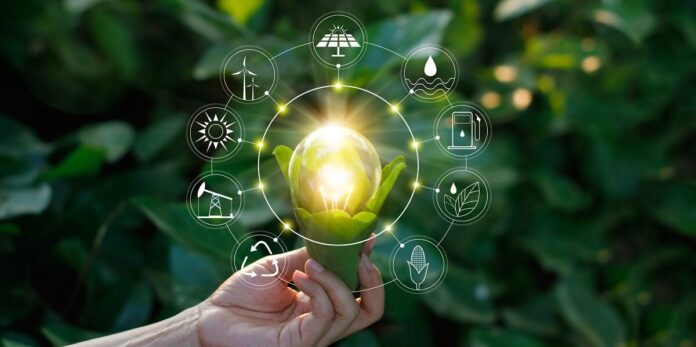In the quest for a sustainable future, technologies play a crucial role in guiding the world toward achieving a net-zero carbon footprint. From renewable energy sources to innovative carbon capture systems, these advancements are shaping a cleaner, greener tomorrow. The pressing need to tackle climate change is spurring unprecedented innovation across industries, cultivating a worldwide dedication to diminishing individuals’ environmental impact.
Renewable Energy Revolution
The transition to renewable energy is a cornerstone in achieving net-zero emissions. Solar, wind, and hydropower technologies are at the forefront, harnessing natural resources to generate clean electricity. As investment in renewables continues to soar, the energy landscape is shifting towards a more sustainable and resilient model. This transition is motivated not only by environmental considerations but also by the economic advantages of adopting clean energy, leading to the creation of new jobs and industries. The burgeoning renewable sector not only enhances energy security but also fosters innovation, positioning nations at the forefront of the global green economy and contributing to the creation of a more diversified and sustainable energy ecosystem.
Carbon Capture Systems
Enterprises are increasingly turning to carbon capture systems to mitigate their carbon footprint. Innovators like Carbon Clean are leading the charge, offering solutions that not only reduce emissions but also create economic opportunities. By capturing carbon dioxide emissions, industries can participate in the circular economy, transforming waste into a valuable commodity. The integration of Carbon Clean’s solutions not only aids in environmental responsibility but also positions companies at the forefront of a market that values sustainability as a competitive advantage.
Energy Storage Breakthroughs
Efficient energy storage is crucial for maximizing the potential of renewable sources. Advancements in battery technologies, such as lithium-ion and emerging solid-state batteries, are enhancing the storage capacity and reliability of renewable energy, enabling a more consistent and widespread integration into power grids. As these technologies evolve, the scalability and affordability of energy storage solutions are improving, enhancing the accessibility of renewable energy for a wider range of users.
Sustainable Transportation
The transportation industry significantly contributes to carbon emissions. Electric vehicles (EVs) fueled by renewable energy are gaining traction as an eco-friendly substitute for conventional combustion engine vehicles. The electrification of public transportation and the expansion of EV charging infrastructure are key components in achieving a net-zero future.
As governments worldwide implement policies to incentivize electric mobility, the automotive industry is witnessing a paradigm shift, with a growing focus on research and development for sustainable transportation solutions. This transformation underscores the industry’s commitment to environmental stewardship and positions electric mobility as a cornerstone for a greener and more sustainable future.
Smart Grids and Energy Efficiency
The integration of smart grids optimizes energy distribution and consumption. By leveraging advanced technologies, such as IoT sensors and AI-driven analytics, smart grids enhance energy efficiency, reduce wastage, and enable better management of power resources. This intelligent approach contributes significantly to the overall reduction of greenhouse gas emissions. As smart grids become more prevalent, their adaptability and resilience contribute not only to environmental sustainability but also to the reliability and stability of energy systems, fostering a more robust and responsive infrastructure. This evolution underscores the pivotal role smart grids play in creating a resilient energy landscape for a sustainable and low-carbon future.


































